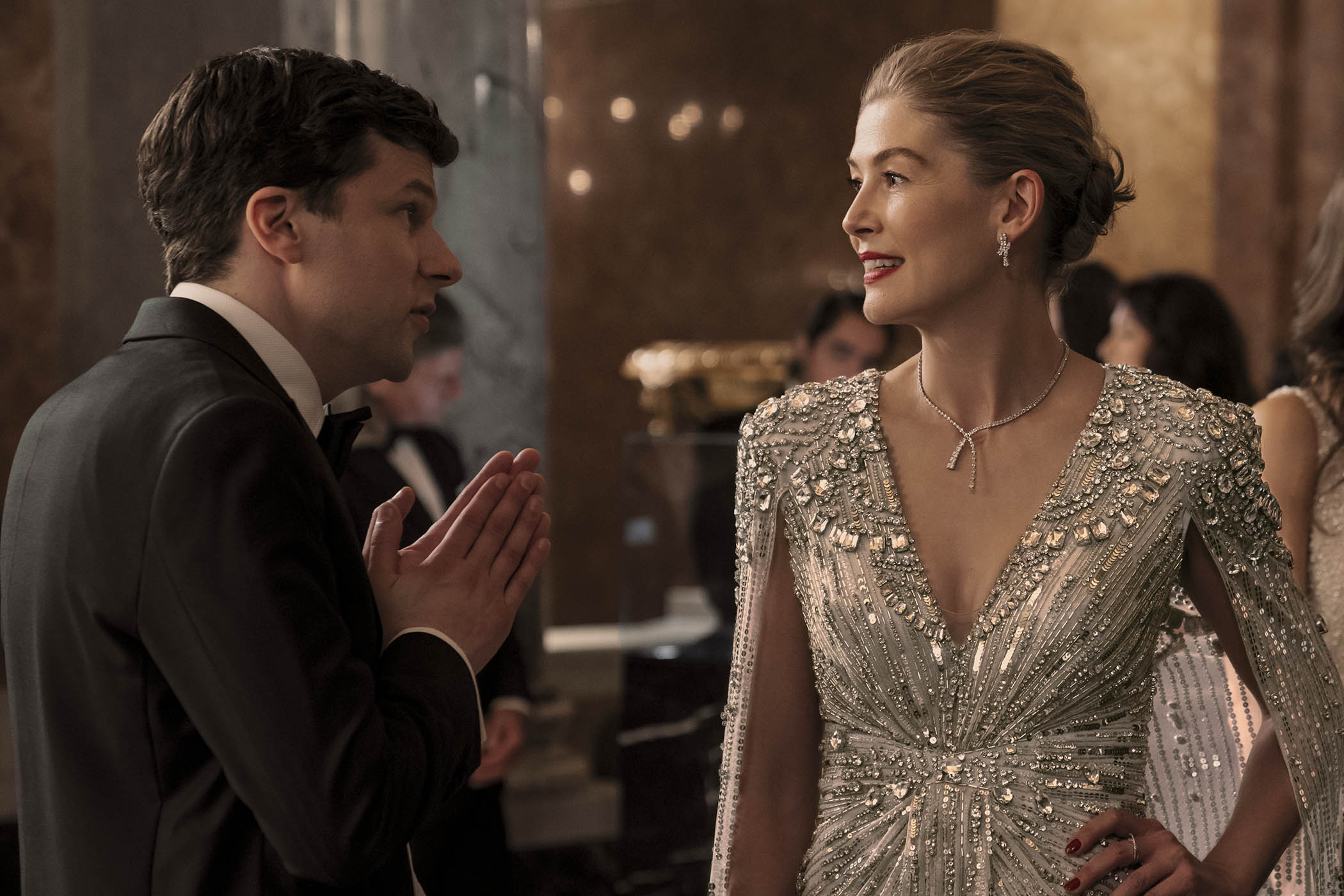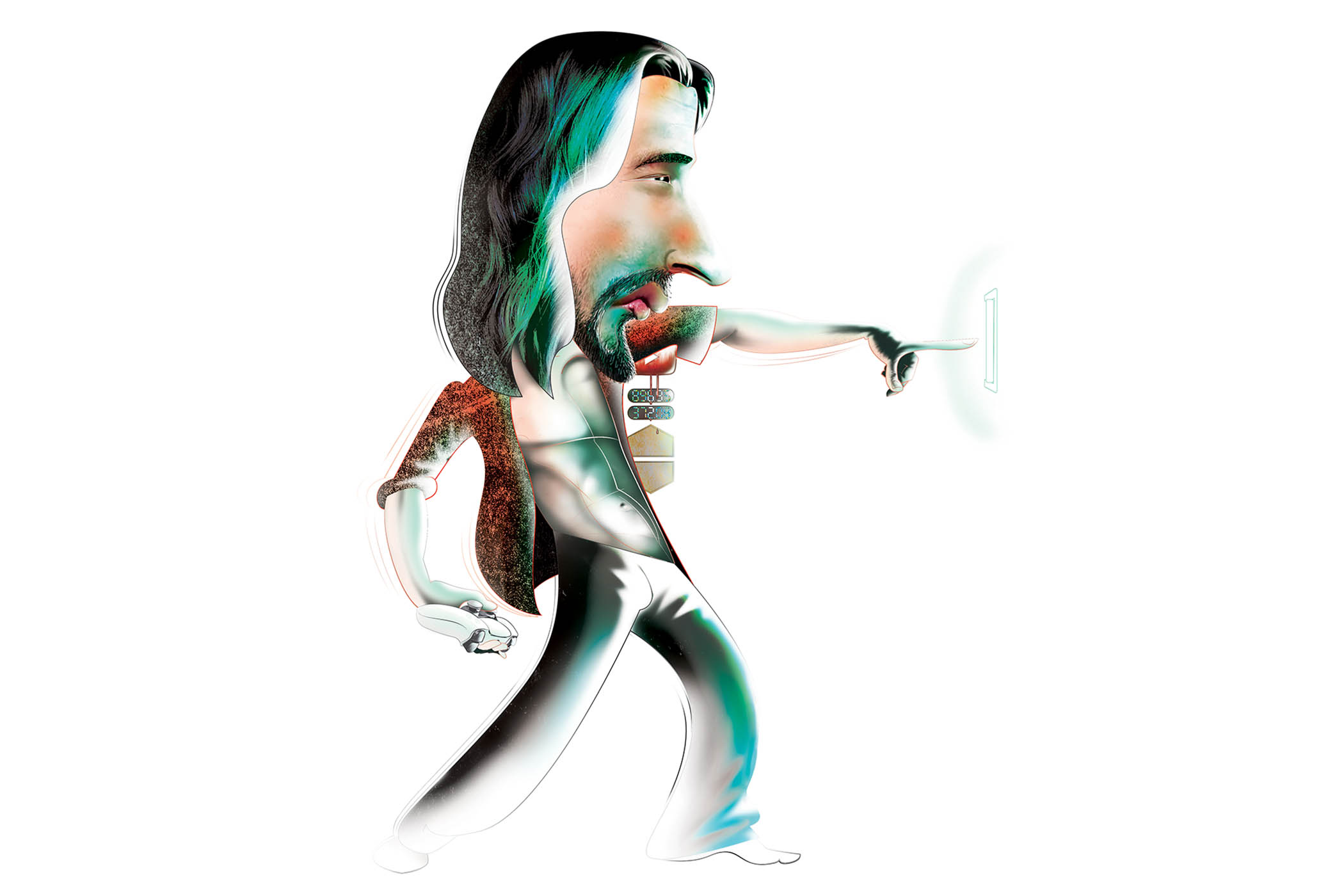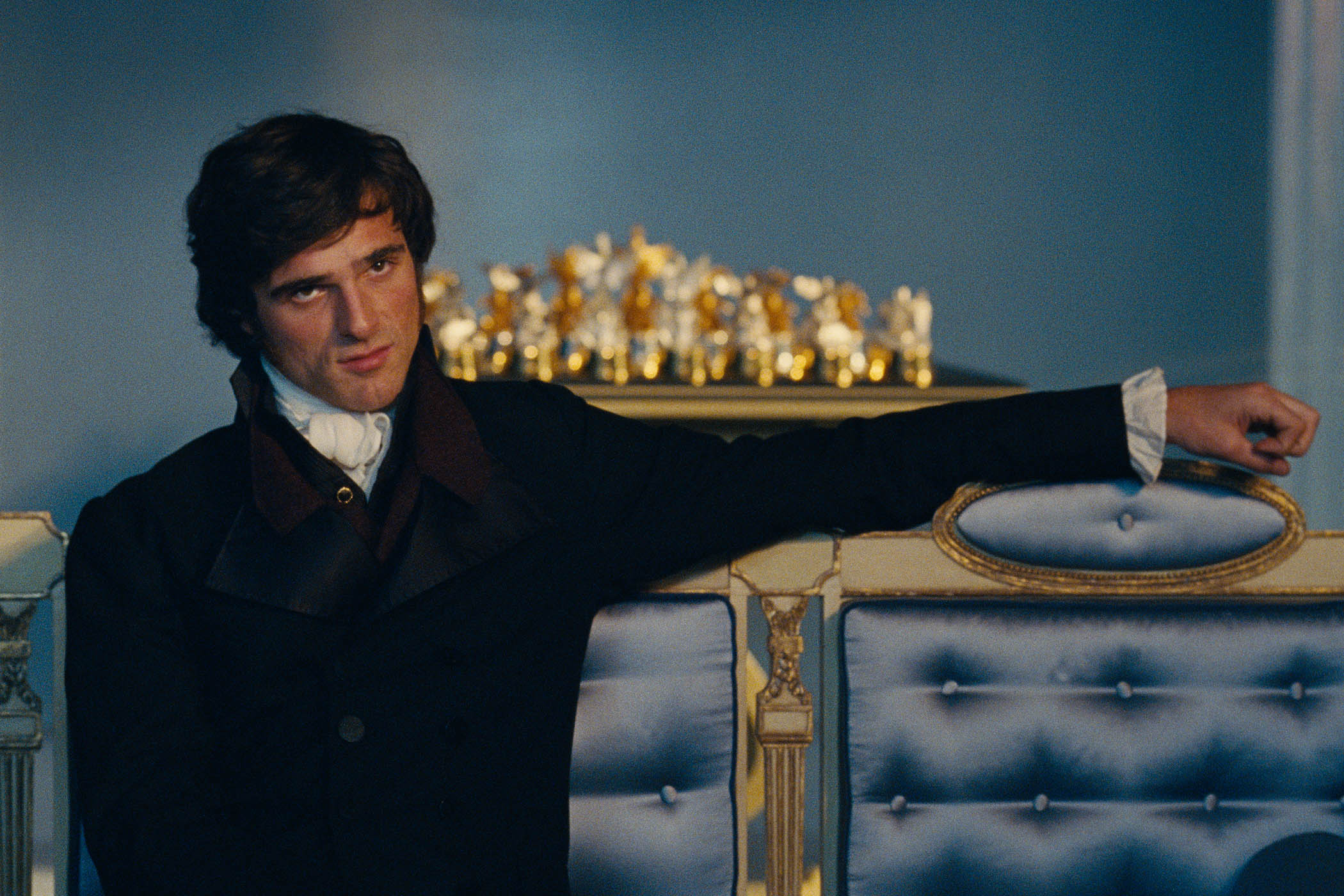Jay Kelly
(132 mins, 15) Directed by Noah Baumbach; starring George Clooney, Adam Sandler, Laura Dern
Like its most luxuriantly vain and self-absorbed stars, Hollywood loves nothing more than turning the lens on to itself – even if it is not always captured in the most flattering light. But Noah Baumbach’s gentle satire of stardom takes a deliberately soft-focus approach, finding an incorrigible appeal in this venal, shallow world and the superficial people who inhabit it.
Jay Kelly is a redemption story of sorts: Jay (George Clooney) is a beloved movie veteran who has coasted through a career playing variations of his own affable personality. He is the kind of celebrity that comes with a huge retinue, a payroll of staff whose job it is to reassure Jay that he’s the most important person in every scenario.
The problem, as both Jay and his long-suffering, dedicated manager Ron (Adam Sandler, excellent) are starting to learn, is that if you repeat something enough, people begin to believe it. Jay belatedly realises that his pursuit of his career has come at the expense of his relationship with his two daughters. And Ron, scurrying to service the whims of his boss, is in danger of making the same mistake.
It’s the kind of role that Clooney could do in his sleep – Jay is a magnetic actor, after all – but one that he derails slightly through his considerable personal charm. Needily pursuing his youngest daughter across Europe, shedding members of his entourage at every turn, Jay should be a pitiable figure. Yet Clooney’s inherent likability cushions the character from our judgment. Meanwhile, Baumbach encourages us to celebrate the lives Jay touched, rather than condemn him for the children he neglected.

‘A rebellious spirit and sense of mischief’: Nina Ye and Shih-Yuan Ma stars in Left-Handed Girl
Left-Handed Girl
(109 mins, 15) Directed by Shih-Ching Tsou; starring Janel Tsai, Nina Ye, Shih-Yuan Ma
Shot entirely on iPhones, largely at a child’s-eye level, the first solo directing project from Sean Baker’s long-term producer Shih-Ching Tsou shares a jangling energy and emotional rawness with several of the pair’s previous collaborations – particularly the bubblegum-hued breadline chaos of The Florida Project.
Newsletters
Choose the newsletters you want to receive
View more
For information about how The Observer protects your data, read our Privacy Policy
Left-Handed Girl, which is loosely inspired by events from Tsou’s childhood in Taiwan, follows a single mother, Shu-Fen (Janel Tsai), and her two daughters as they relocate to Taipei to run a noodle stand in a night market. Money is tight, and the older daughter, I-Ann (Shih-Yuan Ma), takes a job as a scantily clad “betel nut beauty”, who sell nuts and cigarettes at a roadside stall.
The younger, five-year-old I-Jing (a terrific, unaffected performance from Nina Ye), embarks on her own get-rich scheme: a shoplifting spree that she blames on her “devil’s hand” (the left hand, according to her traditional grandfather, is cursed and should never be used). The themes of secrets, shame and family stresses should make for bleak viewing. But the film-making, like the irrepressible I-Jing, has a rebellious spirit and sense of mischief.
Nuremberg
(148 mins, 15) Directed by James Vanderbilt; starring Russell Crowe, Rami Malek, Michael Shannon
A towering performance by Russell Crowe as the wily and charismatic Nazi Reichsmarschall Hermann Göring is the main reason to watch this solid, slightly ponderous period drama. Based on the nonfiction book The Nazi and the Psychiatrist by Jack El-Hai, this picture loads a whole lot of postwar history on to the flimsy framework of a conflicted bond between Göring and Lt Col Douglas Kelley (Rami Malek), the US army psychiatrist sent to appraise him and his fellow Nazi defendants in advance of the Nuremberg trials. Göring, we are told, is a brilliant, tricky individual, who is two steps ahead of the prosecutors at all times – and such is Crowe’s commanding authority in the role, he makes a persuasive case for his character’s strategic cunning and quick wits. Malek, meanwhile, is both outclassed by Crowe’s performance and failed by the writing: his Kelley is a thinly drawn, underpowered presence.
Alpha
(128 mins, 15) Directed by Julia Ducournau; starring Tahar Rahim, Golshifteh Farahani, Mélissa Boros
The director of Titane (the queasiest head-spinner of a movie ever to win the Cannes Palme d’Or), Julia Ducournau is clearly well versed in the terrors that lurk inside the human body. (See Radar on page 4.) So an Aids epidemic allegory, in which a 13-year-old wild child who gets a backstreet tattoo has to live with dread of a deadly virus, should be rich thematic territory. But despite strong performances – a shockingly emaciated Tahar Rahim is a standout as the dropout addict uncle of young Alpha (Mélissa Boros) – the film feels oddly emotionally inert.
Part of the problem is an unwieldy and confusing structure that chops up the timeline and merges fantastical elements with reality. The imagined virus gradually turns its sufferers to marble: a visually striking metaphor that is arrestingly rendered through CGI. But Aids was already horrifying enough, and this allegorical version of the disease adds very little. Stylish but subdued to the point of torpor, the movie lacks the unpredictable energy and dangerous serrated edges of Ducournau’s previous work.

‘If a movie could be punchable, this one would be’: Jesse Eisenberg and Rosamund Pike in Now You See: Now You Don’t
Now You See Me: Now You Don’t
(112 mins, 12A) Directed by Ruben Fleischer; starring Jesse Eisenberg, Woody Harrelson, Dave Franco
The quickest way to kill the fun of a conjuring trick is to explain, in stultifying detail, how it was done. Unfortunately, the makers of Now You See Me: Now You Don’t, the third film in the illusionist heist series, didn’t get this memo. The insufferably smug Four Horsemen (Jesse Eisenberg, Woody Harrelson, Dave Franco and Isla Fisher) reunite with a new generation of smirking showoffs to steal a bunch of stuff from rich people, like Rosamund Pike’s South African diamond dealer.
Which would be fun, if the action didn’t grind to a halt every 20 minutes so we can pat Ruben Fleischer’s film on the back and acknowledge how clever it is. If a movie could be punchable, this one would be.
Photographs by Netflix/Lionsgate



